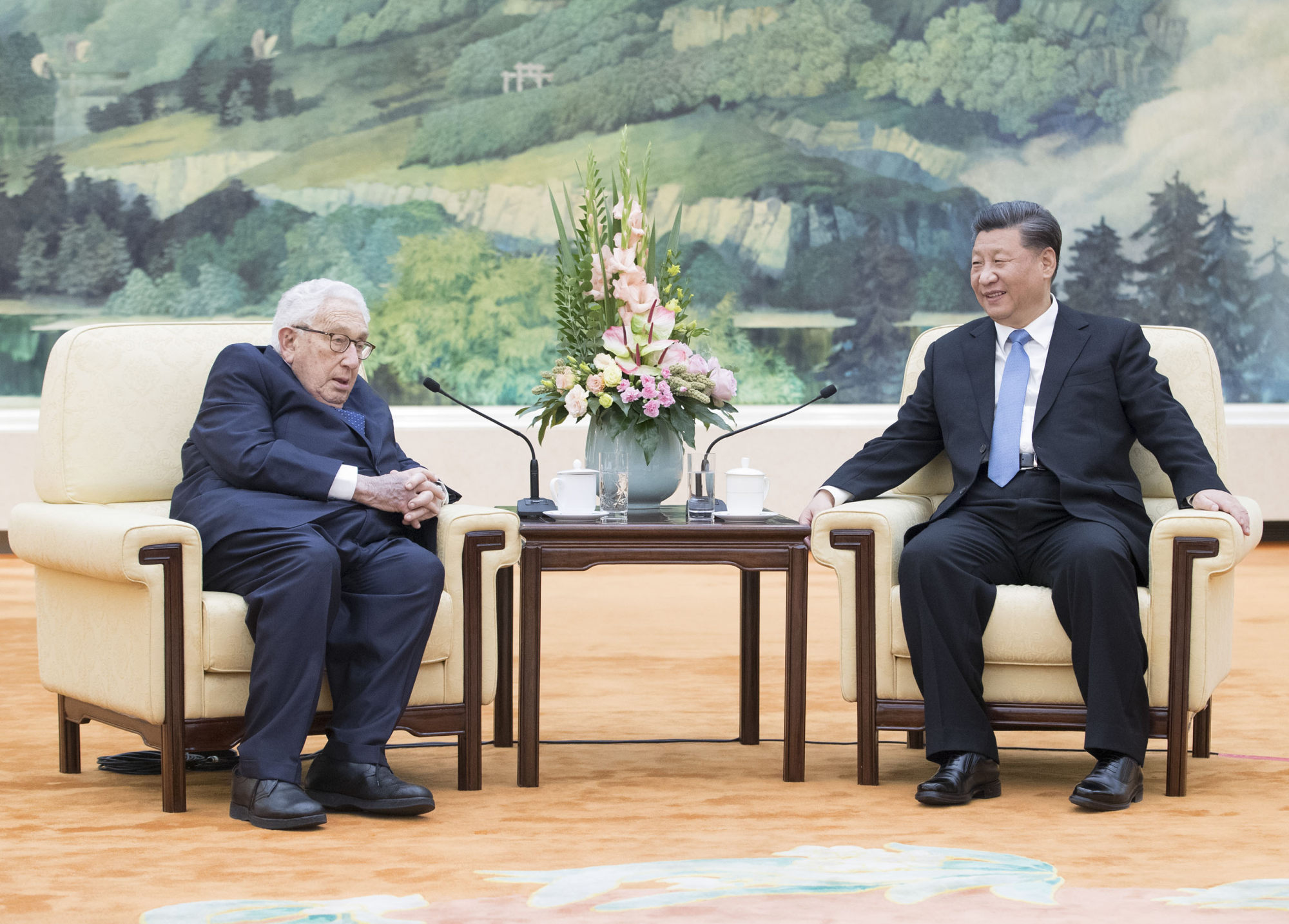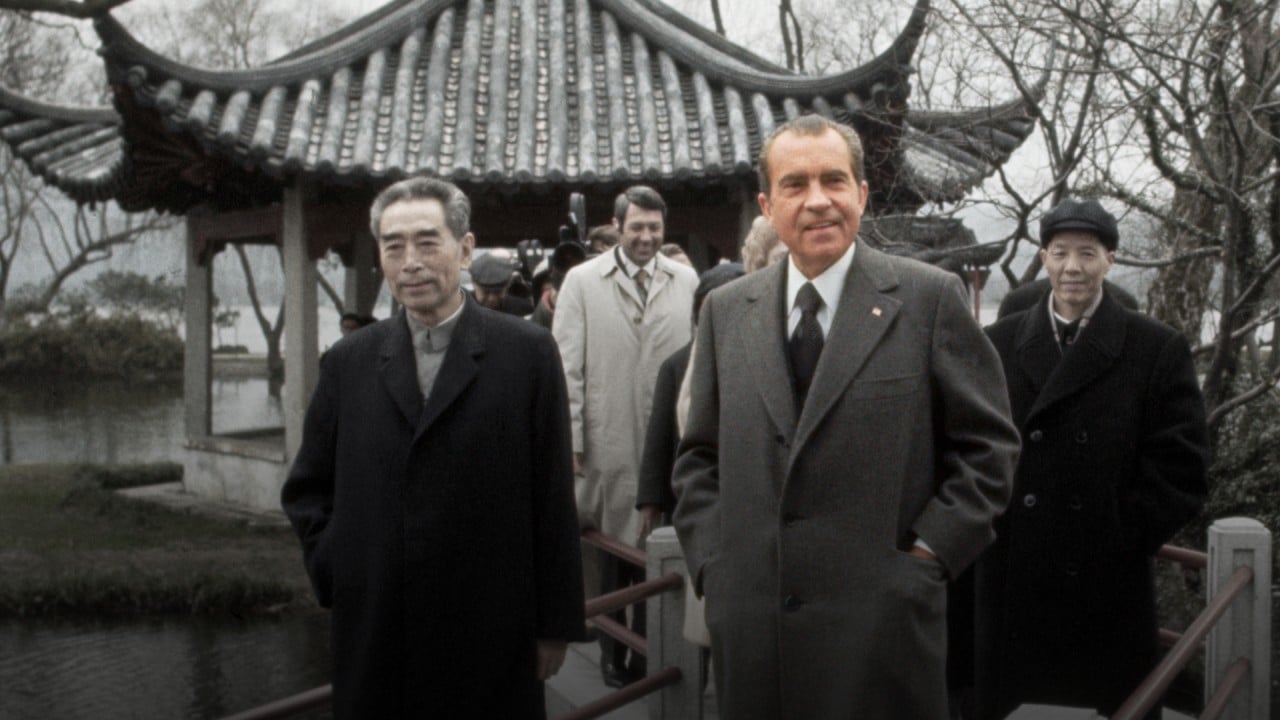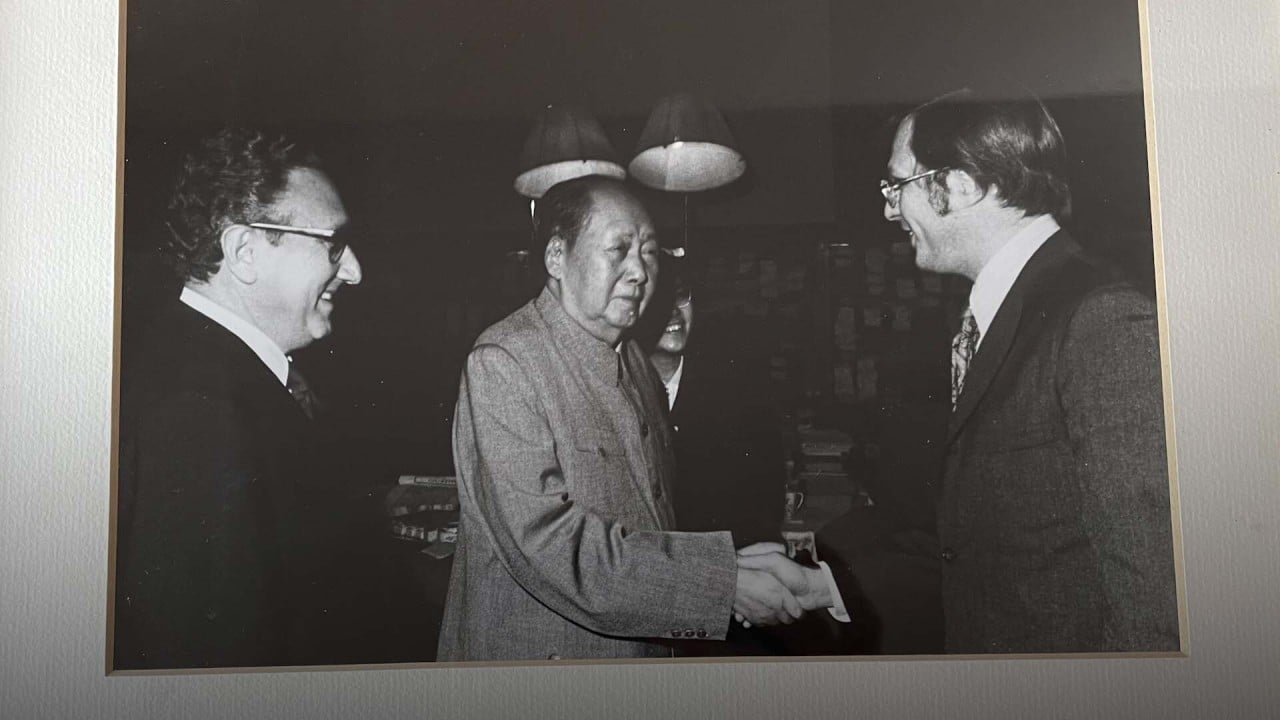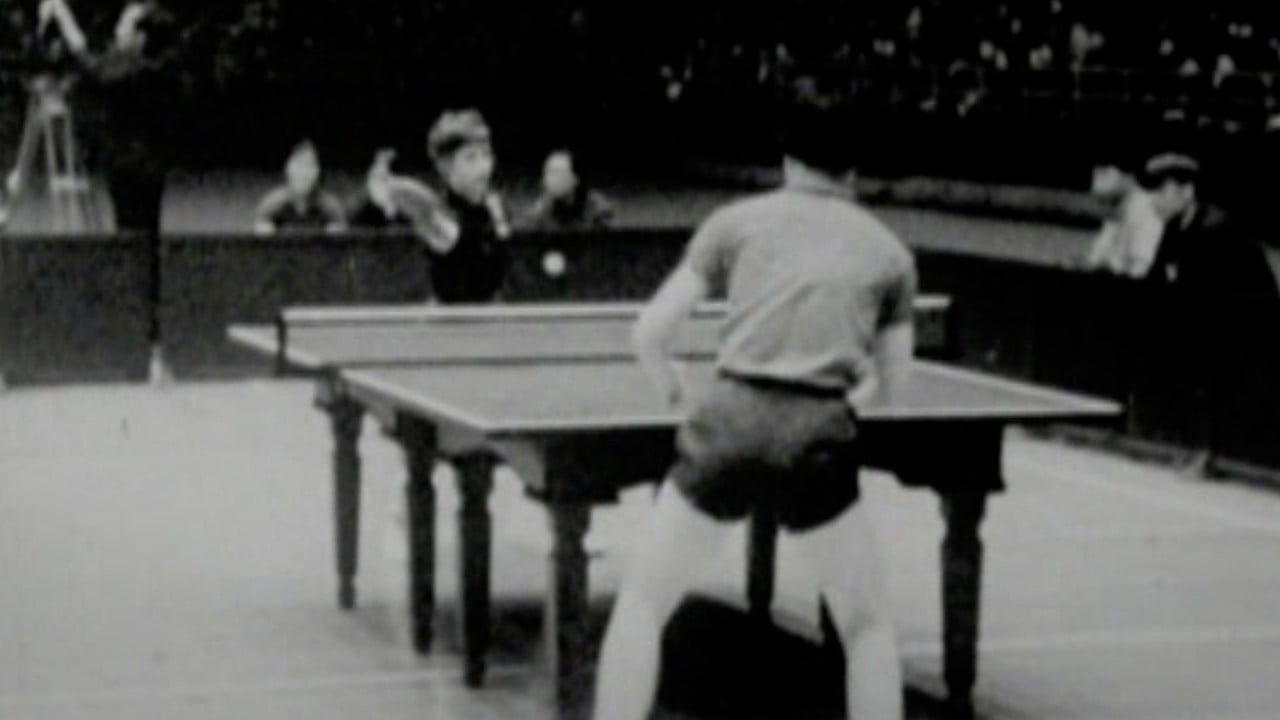His negotiations with premier Zhou Enlai – over what remains the most fraught issue in US-China relations, Taiwan – paved the way for Nixon’s historic trip.
The major sticking points – US military support for the self-governing island and whether the United Nations would recognise Beijing or Taipei – were ultimately finessed with a series of communiques, assurances and laws.
Kissinger initially argued for a “two Chinas” formula that would see both Taiwan and China seated at the UN, but Zhou said no compromise was possible. After extensive negotiations, Taipei lost its United Nations seat to Beijing, Washington officially recognised only one China and the US agreed to support Taiwan militarily.
Papered over with vague wording was whether the US would come to Taiwan’s defence in the event of an attack, a policy known as “strategic ambiguity” that US hardliners have sought to chip away at in recent years.
Kissinger’s trips paved the way for the 1972 summit between Mao Zedong and Nixon that saw formal relations established after 23 years of hostility. As part of that, the two sides also made a tacit agreement to work strategically against the Soviet Union, although full normalisation of relations would take place only in 1979.
More divisive were Kissinger’s actions in prolonging and expanding the Vietnam war. “I refuse to believe that a little fourth-rate power like North Vietnam doesn’t have a breaking point,” he told aides in July 1969.
On becoming national security adviser, he initially favoured negotiations with Hanoi and opposed the wholesale bombing of Cambodia, which was a vital staging area and supply route for Hanoi.
Kissinger marks 50 years since first China visit, urges US-China talks
Kissinger marks 50 years since first China visit, urges US-China talks
But when Nixon threw his support behind the bombing campaign, Kissinger quickly followed suit, ultimately leading to the genocidal reign of Cambodia’s Khmer Rouge. In 1973, the Pentagon acknowledged that Kissinger approved each of the 3,875 bombing raids on Cambodia in 1969 and 1970 as well as “the methods for keeping them out of the newspapers”.
Kissinger, who became US secretary of state in late 1973, also played a key role in negotiating the Paris peace talks and ceasefire, controversially winning the Nobel Peace Prize in 1973 with Vietnamese counterpart Lê Đức Thọ, who turned down the award. The ceasefire was short lived, however, and the communists took over two years later.
Over his decades in policy, he also played a crucial part in a host of other major events, including detente with the Soviet Union and support for Pakistan in its bloody war against former East Pakistan, ultimately resulting in an independent Bangladesh. Archer Blood, then the US consul general to East Pakistan, described the attack as “selective genocide”.

Kissinger also helped negotiate a successful end to the 1973 Yom Kippur war between Israel and Egypt, supported a coup against Chile’s democratically elected Salvador Allende that same year; gave a green light to Indonesia in its 1975 invasion of East Timor, leading to a 24-year brutal occupation; and considered air strikes against Cuba the following year.
After Nixon’s resignation in 1974 over the Watergate scandal, Kissinger’s power diminished under president Gerald Ford, although he remained secretary of state until Ford left office in January 1977.
Nixon and Kissinger made a fascinating, complementary pair, wrote historian David Rothkopf in his 2005 book Running the World: The Inside Story of the National Security Council and the Architects of American Foreign Policy.
Kissinger was charming and worldly, providing the grace and establishment respectability that Nixon looked down upon but aspired to. “These self-made men were driven as much by their need for approval and their neuroses as by their strengths,” Rothkopf wrote.
In subsequent decades, Kissinger held various academic, corporate board, policy and reform commission positions, and founded the consultancy Kissinger Associates. He wrote some 20 books and maintained close ties to China, saying in the CBS interview in May 2023 that if he put in a call to President Xi Jinping in Beijing “there’s a good chance he would take my call, yes.”
He was also largely supportive of Deng Xiaoping’s decision to use the military against protesting students in Tiananmen Square on June 4, 1989. In recent years, he has called for an easing of tensions between Washington and Beijing.
Just a few months earlier, Kissinger had made his last visit to China, where he met Xi during a “private trip”.
Kissinger: China, US must reveal red lines to avoid conflict
Kissinger: China, US must reveal red lines to avoid conflict
Kissinger was born on May 27, 1923, into a Jewish family in the German region of Bavaria. He was forced to flee with his father, mother and younger brother in 1938 as Nazi persecution intensified. They stopped briefly in London before moving to New York City, where he changed his name to Henry, attended high school and studied accounting at City College of New York.
Although he adjusted quickly, he never lost his thick German accent, in part because he was reluctant to speak as a child. In 1943, partway through college, he joined the US Army where he did intelligence work, won a Bronze Star for tracking down Gestapo officers and saboteurs and became a naturalised citizen.
His younger brother Walter B. Kissinger, a former chairman of multinational company the Allen Group who died in 2021, was sometimes asked why he had lost his Bavarian accent while Henry kept his. On several occasions, Walter gave interviewers some version of: “Because I am the Kissinger who listens.”
In 1943, when he was partway through college, the future diplomat joined the US Army where he did intelligence work, won a Bronze Star for tracking down Gestapo officers and saboteurs, and became a naturalised citizen.
Returning to the US after the war, Kissinger entered Harvard University and earned a bachelor’s, master’s and PhD. His doctoral thesis on the relationship between peace and legitimacy was so long – at over 400 pages – that Harvard set a 35,000-word limit on subsequent dissertations.
He remained at Harvard as a faculty member while working at various outside fellowships, consultancies and think tanks, focusing increasingly on nuclear weapons. With an eye on melding theory with practice, he became foreign policy adviser to New York governor Nelson Rockefeller’s 1960, 1964 and 1968 campaigns for the Republican presidential nomination.
Kissinger warns of ‘catastrophic’ conflicts between China and US
Kissinger warns of ‘catastrophic’ conflicts between China and US
When Nixon was campaigning in 1968, Kissinger initially called him “the most dangerous of all the men running to have as president”. But after Nixon won the Republican nomination, Kissinger changed his tune, telling Nixon aide Richard Allen that he was willing to do whatever he could to help get Nixon elected.
Kissinger, whose actions were often carried out in secret – including his role in hiding the 1969 bombings of Cambodia and Laos from Congress and the American public – faced his share of critics, from anti-war activists and sociologists to politicians and foreign policy experts who accused him of arrogance and adhering to a 19 century view of power politics.
Unapologetic to the end, he questioned the intelligence of his critics, including some who called his actions in Vietnam and Cambodia criminal.
“That’s a reflection of their ignorance,” he said in an interview on CBS Sunday Morning shortly before his 100th birthday. “It was a necessary step. Now the younger generation feels that if they can raise their emotions, they don’t have to think.”
Charles Freeman, a retired diplomat who served as translator during Nixon’s 1972 trip to Beijing, said Kissinger was firmly rooted in European balance of power politics and had little interest or knowledge about Asia until visiting China in 1971.
“He went to Beijing and was entranced, discovered leaders with very sophisticated vision, very sophisticated statecraft with sensible opinions on everything, even though China was isolated,” said Freeman, a former US ambassador to Saudi Arabia.
Kissinger was brilliant and complicated, Freeman added.
“He could be utterly charming, but only when it was in his interest. And he was not considerate of subordinates,” he added. “He had great deference to authority … Although Nixon was a tortured man, and Kissinger observed that up close, he was always very careful not to cross Nixon.”
He was the first foreign-born US secretary of state and the first to hold that title and the national security adviser job simultaneously.
In 1949, he married Ann Fleischer. They had two children and divorced in 1964. He married Nancy Maginnes in 1974. At the age of 100, he continued to serve as chairman of Kissinger Associates.
Kissinger is survived by his wife, Nancy, and his two children, David and Elizabeth Kissinger, whom he had with his first wife, Fleischer.





